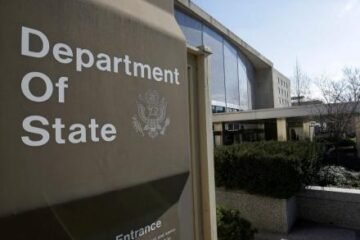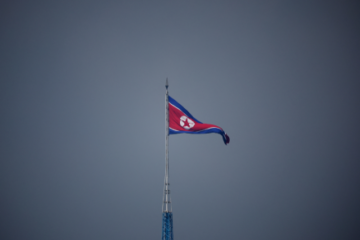Lebanon’s leaders were warned about the explosives at the Beirut Port

Beirut, 12th August: Lebanese security officials have warned the leaders in advance about explosives at the Beirut port.
According to Reuters, Lebanese security officials warned the prime minister and president last month that 2,750 tonnes of ammonium nitrate stored in Beirut’s port posed a security risk.
They had also warned the government that the explosives could destroy the capital if it exploded, according to documents seen by Reuters and senior security sources.
Explosives expert reveals real cause of Beirut blasts
It is to be remembered that a week before a catastrophic blast took place in Beirut, killing more than 200 people and injuring 6,000. The blast destroyed 6,000 buildings, according to municipal authorities.
A report by the General Directorate of State Security on events leading up to the explosion included a reference to a private letter sent to President Michel Aoun and Prime Minister Hassan Diab on July 20.
While the content of the letter was not in the report seen by Reuters, a senior security official said it summed up the findings of a judicial investigation launched in January which concluded the chemicals needed to be secured immediately.
Lebanon falls victim to global conspiracies after Beirut blast
“There was a danger that this material if stolen, could be used in a terrorist attack,” the official told Reuters.
“At the end of the investigation, Prosecutor General (Ghassan) Oweidat prepared a final report which was sent to the authorities,” he said, referring to the letter sent to the prime minister and president by the General Directorate of State Security, which oversees port security.
“I warned them that this could destroy Beirut if it exploded,” said the official, who was involved in writing the letter and declined to be named.
WHO Appeals for $15 million Aid for Lebanon after Beirut Blast
Reuters could not independently confirm his description of the letter.
The presidency did not respond to requests for comment about the July 20 letter.
A representative for Diab, whose government resigned on Monday following the blast, said the PM received the letter on July 20 and it was sent to the Supreme Defence Council for advice within 48 hours.
“The current cabinet received the file 14 days prior to the explosion and acted on it in a matter of days. Previous administrations had over six years and did nothing.”
Protests over Beirut’s bomb blast, Lebanese PM resigns
The prosecutor general did not respond to requests for comment.
Aoun confirmed last week that he had been informed about the material. He told reporters he had directed the secretary-general of the Supreme Defence Council, an umbrella group of security and military agencies chaired by the president, to “do what is necessary”.
Many questions remain over why the shipment of ammonium nitrate docked in Beirut in late 2013. Even more baffling is why such a huge stash of dangerous material, used in bombs and fertilizers, was allowed to remain there for so long?
The road to last week’s tragedy began seven years ago, when the Rhosus, a Russian-chartered, Moldovan-flagged vessel carrying ammonium nitrate from Georgia to Mozambique, docked in Beirut to try to take on extra cargo to cover the fees for passage through the Suez Canal, according to the ship’s captain.
Stay tuned to Baaghi TV for more news and updates!










